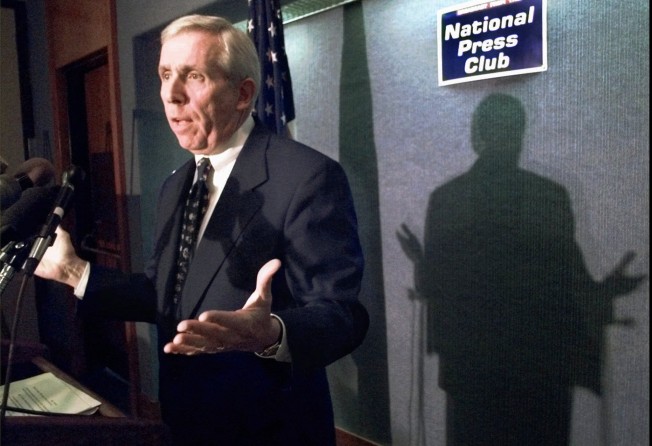Beijing condemns Nasa ban on Chinese as 'discrimination'
Beijing blasts decision by space agency to bar Chinese from forum as US congressman who helped to draw up legal restrictions adds his criticism

Beijing has criticised the US space agency Nasa for what it termed "discriminative action" over a decision to bar Chinese representatives from a science conference in the United States.
The agency has announced that Chinese nationals will not be permitted to enter the Second Kepler Science Conference on exoplanets at California's Ames Research Centre next month.
The decision sparked criticism and a boycott of the conference by some prominent US astronomers.
It also led the US congressman who wrote the law on which the restriction was based to criticise Nasa. In Beijing, foreign ministry spokeswoman Hua Chunying said she was aware of reports on Nasa's decision.
"At the same time I have also noticed that the discriminative action by Nasa has also met opposition" in the United States, she added.
"We think that these academic meetings should not be politicised."
The restriction is based on a law passed in 2011 and signed by Barack Obama that prevents Nasa funds from being used to collaborate with China or to host Chinese visitors at US space agency facilities.
The legal language was inserted into a funding bill by Congressman Frank Wolf, who chairs the House Subcommittee on Commerce, Justice, Science and related Agencies.
The law bans Nasa funds from being used to work "bilaterally in any way with China or any Chinese-owned company" or being "used to effectuate the hosting of official Chinese visitors at facilities belonging to or utilised by Nasa".
Wolf's office wrote to Nasa Administrator Charles Bolden on Tuesday saying the law "primarily restricts bilateral, not multilateral, meetings and activities with the Communist Chinese government or Chinese-owned companies."
It added: "It places no restrictions on activities involving individual Chinese nationals unless those nationals are acting as official representatives of the Chinese government."
One of the banned delegates was a Chinese post-doctoral student at Yale University with no known ties to the Chinese government.
Wolf said Nasa officials may have believed the move was needed because of extra temporary restrictions on foreign nationals after a potential security breach by Chinese citizen at a Nasa facility in Virginia earlier this year.
The citizen, Bo Jiang, was arrested at Dulles Airport and charged with making false statements to federal agents about the laptop and phone memory card he was carrying.
According to an FBI affidavit, Bo had taken a Nasa laptop that contained sensitive information on a previous trip to China. As it turned out, Bo didn't have any secret information but had downloaded porn onto his Nasa laptop in violation of agency rules, a misdemeanour.
After the arrest, Nasa chief Bolden limited access to Nasa for the citizens of several countries, including China, pending a full security review. A formal report on the review has now been completed and should be released soon, Wolf wrote on Tuesday.
"It was my understanding that Nasa's temporary restrictions had been lifted after a review of security protocols for foreign nationals at all Nasa centres," his letter said.
Alan Boss, of the Carnegie Institution for Science in Washington, the co-chair of the upcoming Kepler conference, issued a statement to attendees on Tuesday, saying: "We find the consequences of this law deplorable and strongly object to banning our Chinese colleagues, or colleagues from any nation.
"We are pursuing other options that will allow participation by all interested scientists either in person or remotely."
Agence France-Presse, Bloomberg